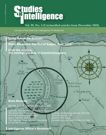
 –
Mike's books
–
Mike's books
astronauticsnow.com/spyatusc/59thusccommencement.html
Mike's space and rocket videos –

 –
Mike's books
–
Mike's books
59th Annual Commencement at USC
Espionage Story
59th Annual Commencement at USC
excerpts from Enemy Amongst Trojans. A Soviet Spy at USC, 2010, pp. 11, 12, 22, 23
Chapter 2. Fifty-ninth Annual Commencement
On Saturday, June 6th of 1942, the Los Angeles Memorial Coliseum greeted graduates of the University of Southern California at the Fifty-Ninth Annual Commencement. The color bearers and guard of the Naval Reserve Officers Training Corps led the column with the Trojan band playing "Pomp and Chivalry."[1]
An unusually small crowd of ten thousand cheered 1600 graduates. The country had been at war for six months now. At the time of the ceremony—and unknowingly to the gathered Trojans—the American Pacific fleet clashed with the forces of the Imperial Japan at Midway. This fierce battle would end the general naval superiority of Japan and transfer strategic initiative in the Pacific to the United States.
At the Commencement, USC President (1921–1947) Rufus B. von KleinSmid called to "rededicate ourselves today with you toward all that we are and must be after victory to the end that righteousness may again reign in the world. … We have now set our feet on the path of victory—and we shall know no turning aside." Two prominent Americans, Secretary of State Cordell Hull and Vice Admiral Joseph M. Reeves, [2] received honorary USC degrees in absentia because of wartime. Many honored graduates already joined war effort and "at least one Navy enlisted man in uniform was among those receiving degrees." [3]
One marching Trojan graduate, however, had a very different allegiance and notions of righteousness. He called himself Ignacy Samuel Witczak. His allegiance was Communism and a socialist paradise — "the society of the future" — being built in Russia. An illegal rezident of the Soviet military intelligence GRU in Los Angeles, Witczak focused his effort on obtaining closely guarded military and industrial secrets of America, the USSR's wartime ally.
[snip]
The Litvins arrived at Los Angeles, posing as the Canadians Ignacy and Bunia Witczak, in 1938. His initial task was "to establish an agent network to communicate with the ... [Soviet] intelligence in Japan. Many men and women of the Japanese origin with strong ties with Japan lived in Los Angeles ..."
After the Soviet Union had entered World War II in 1941, Litvin refocused his effort on the political, military, scientific, and industrial espionage against the United States. His top targets included the "aviation industry, radio technology, shipbuilding, defense industry, and obviously political information." [43]
Litvin's position at USC offered him excellent opportunities for recruitment. He regularly participated in the seminars at the Department of Political Science. As Litvin wrote later in his unpublished recollections, "there were discussions of various topics at these seminars. Comments of students revealed their views, including their political orientation. I attentively observed and listened their comments and made conclusions with whom to get closer and who could be helpful in accomplishing tasks of the rezidentura [spy station]." [44]
During the World War II, the Soviet Union embarked on building aggressive espionage and subversive operations against its war time allies. This line of action was in stark contrast to the policies of the United States and Great Britain. A Soviet spy and high-ranking officer in the British intelligence Kim Philby described many years later in a lecture to the KGB that "SIS [British Secret Intelligence Service, or MI6] were so stretched by the war effort against the Axis that from 1939 onwards, there was no activity directed against the Soviet Union. Only in 1944, when the defeat of the Axis was assured, did they begin to look forward to the next enemy ..." [45]
Soviet espionage in the United States under official cover and Illegals
Soviet Vice-Consulate in Los Angeles and Espionage
Master's thesis of Soviet spy at USC: mockery of scholarship
Soviet Espionage in Southern California
About the book
USC VSOE News Story:
Viterbi Astronautics Professor Writes Cold War Historical Study
Book review
(Intelligence Officer’s Bookshelf)

"Mike Gruntman, an astronautics professor at USC, has written an interesting and succinct account of this [espionage] case that heretofore escaped the attention of other espionage academics. A nice contribution to the literature."
Studies in Intelligence (unclassified extracts), CIA, Vol. 59, No. 4, p. 74, December 2015.
Mike's books
–
Public policy. Copyright © 2004–2016.
All rights reserved.
 Mike's space and rocket videos –
Mike's space and rocket videos –
 Make the world a better place
Make the world a better place